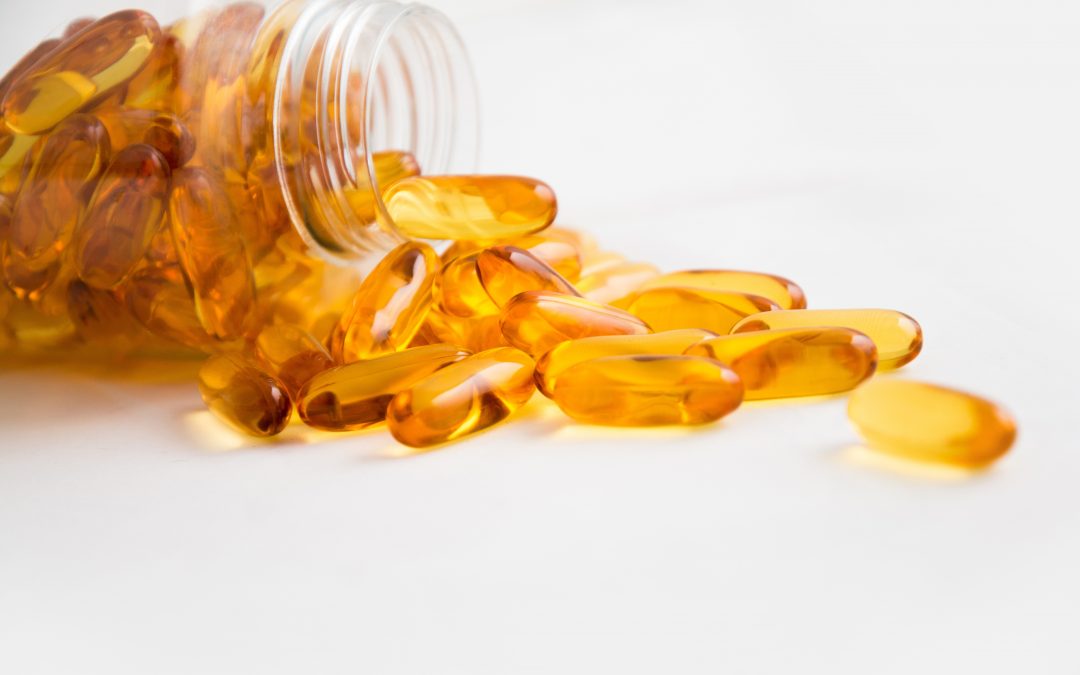Vitamins are organic compounds that the body needs to perform many necessary functions, but cannot make in sufficient quantities. They need the boost from either taking in food that is rich in these compounds or by taking oral supplements. Eating food directly gives you the whole compound, though, which is important to keep in mind.
Vitamins generally help in many bodily functions, such as boosting the immune system, growing and repairing broken tissues, and even regulating one’s metabolism. Here’s a list of all the vitamins that are essential to one’s body.
- Vitamin A – This fat-soluble vitamin plays a necessary role in the growth and health of teeth, bones, soft tissues, mucous membranes, skin, and cell development. It’s mainly found in carrots and other foods that share the same hue, like sweet potatoes, cantaloupe, and melons. They are also known as carotenoids which aid in improving your vision and help fight off chronic diseases.
- Vitamin B1 (Thiamine/Thiamin) – These vitamins are good for maintaining healthy energy metabolism. This is commonly found in the likes of pork, legumes, fish, nuts, seeds, fortified cereals, grains. People with certain health conditions might require more of this supplement as their conditions make them heavily lack it, like those with HIV and diabetes. Those that drink quite a lot of alcohol may also be lacking. Thiamine deficiency may be found in symptoms like weight loss, memory loss, muscle weakness and even an enlarged heart. Sometimes this can also include mental symptoms.
- Vitamin B2 (Riboflavin) – This is a vitamin that the body needs for optimum energy production, as well as cell growth, adrenal function and development. This can also help with maintaining healthy skin. Commonly found in organ and lean meat, eggs, milk, and vegetables. Some grains may also be fortified with riboflavin. Taking this supplement might make urine appear more yellow than usual.
- Vitamin B3 (Niacin) – This B vitamin is essential for converting food into stored energy. In larger amounts, B3 can also lower cholesterol. It is commonly found in foods like meat, poultry, seafood, milk, eggs, fortified bread, and cereals. Vitamin B3 deficiency is called pellagra, which can also manifest not just physically (dermatitis), internally (digestive problems) but also mentally (dementia). Side effects of this vitamin at some doses can include flushing on the skin.
- Vitamin B6 (Pyridoxine) – An overall essential for good health, Vitamin B6 promotes protein metabolism, metabolism of carbohydrates, and release of energy which in turn helps in proper brain function and regulation of moods because of manufacturing neurotransmitters. These can be found in beef liver, lean meat, legumes, fish, vegetables especially starchy ones like potatoes. Deficiency in this vitamin is linked to irritability, depression, short-term memory loss and the like.
- Vitamin B12 (Cobalamin) – Helps you break down food for energy. The body also finds this useful for forming DNA, RNA, and myelin for nerve fibers. This kind of B vitamin is found in most animal products like dairy. Deficiency in this vitamin may also result in gastrointestinal disorders thus affecting the optimum nutrient absorption.
- Vitamin C (Ascorbic acid) – This vitamin is very well-known for a couple of great reasons. It is a natural antioxidant that can aid in many things like bone health, skin, and muscle healing. It can also help boost the immune system which is why people like to take this is every day. It is found in a plentiful amount of food, including citrus fruits like oranges, lemons as well as papaya, strawberry, kiwi, cantaloupe. Vegetables like broccoli and bell peppers may contain it as well. Safe to say that because of its commonness, humans typically get their daily needed dose of vitamin C. This is also a water-soluble vitamin, which means you will need to take it in regularly to be able to maintain your adequate intake.
- Calcium – This is a mineral that must be taken to improve the quality and strength of the teeth and bones. Good sources of calcium include dairy products like milk, yogurt, and cheese. Vegetables like broccoli and other leafy ones also contain calcium. Sardines, salmon, cereal, and even orange juice are some of the other foods that contain this. Certain groups of people are at a higher risk for calcium deficiency, people that suffer from anorexia, and those that are excessively athletic. Calcium deficiency may manifest in many bone-related diseases and even joint pain.
- Vitamin D – This is a fat-soluble vitamin that the body needs to regulate cell growth and enhance immune functions that can help to combat different kinds of diseases and infections. This vitamin is found in a various selection of foods, but the best way to really manufacture this is by spending time in the sun. There are times of the day when the sun is not as harmful as later that day, like during the early morning until 10 am. Sun exposure for 10-15 minutes is a good amount of time to spend soaking up some rays, but too much at the wrong time may put you at risk for skin cancer so be mindful of this.
- Vitamin E – Another great antioxidant vitamin that combats free radicals. These are produced by things that can break cells down like cigarette smoke and pollution. A multitude of nuts and seeds contain this vitamin including sunflower seeds, almonds, peanuts, and hazelnuts. Those with nut allergies have the alternative to find them in flower oils such as safflower and sunflower oil and a handful of vegetables. However, be cautious about bleeding because vitamin E can increase this.


